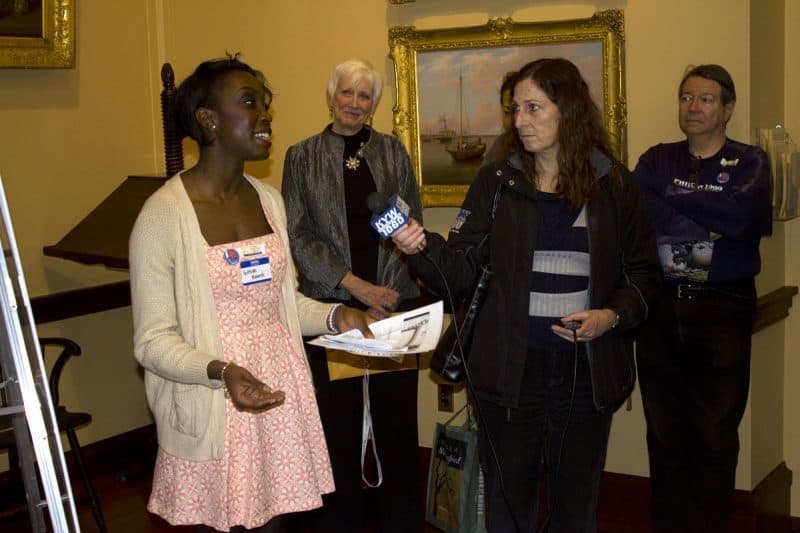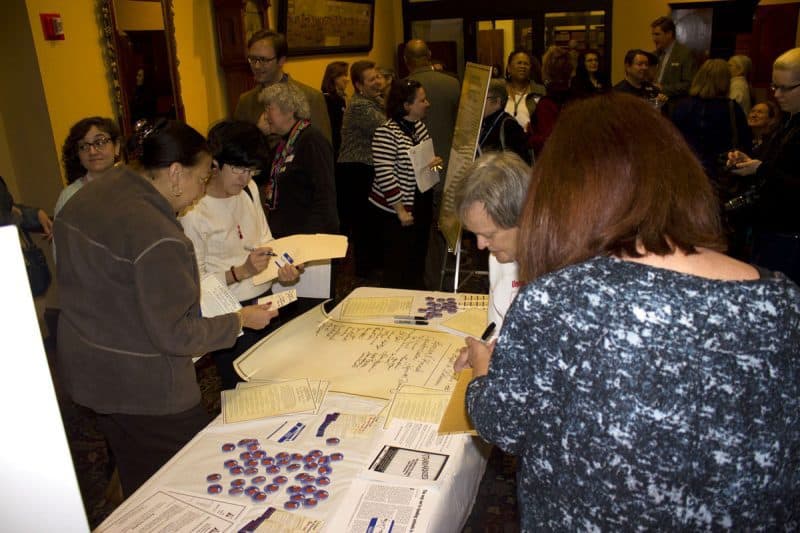ALA Declaration of the Right to Libraries

On January 27, students, parents, and advocates signed the ALA Declaration of the Right to Libraries in the Library Company’s Logan Room in conjunction with the American Library Association winter conference. The ceremonial signing showed support for the survival of libraries throughout the country; signings have been held nationwide since July 2013.
The Declaration is premised on the principles that libraries empower individuals, support literacy and lifelong learning, build communities, strengthen the nation, and promote informed citizenship in addition to advancing research and scholarship—ideas that founder Benjamin Franklin would certainly agree with. The full text of the declaration may be found here.

Speakers at the brief ceremony included event organizer Carol Heinsdorf, member of the Alliance for Philadelphia Public Schools; Karel Kilimnik, Co-Founder of APPS; Library Company Director John Van Horne and Development Director Molly Roth; Bernadette Kearney, member of the Association of Public School Librarians and Librarian at Philadelphia’s Masterman School; and Gomian Konneh, from the School District of Philadelphia’s Student Advisory Board and a Masterman Senior. Konneh read an impassioned statement about the critical contributions that libraries and certified librarians can make to the future success of her and her peers. Finally, Barbara Stripling, President of the American Library Association and creator of the Declaration and the Libraries Change Lives program, talked about the current situation in Philadelphia’s public schools.
According to the ALA, more than 135,000 of Philadelphia’s students no longer have access a certified librarian, or even a library in some instances because of budget cuts. Only 16 certified school librarians remain, compared to 176 in 1991, and about 93 percent of schools within the city do not have librarians. Thus, Stripling says, “students are not learning the information skills, the inquiry skills, the way to navigate in a world of technology and information that’s going to enable them to be successful personally and academically and in their jobs.”

Leave a Reply
Want to join the discussion?Feel free to contribute!